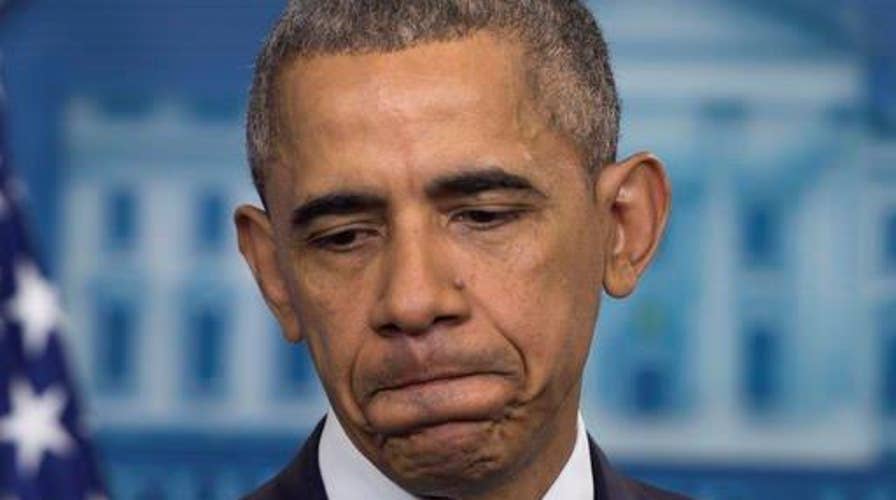Obama adviser right about 'puppet' media and foreign policy?
Ben Rhodes in damage control mode after being quoted in NY Times that he created 'echo chamber' to sell Iran deal and ridiculed press as being young, naive and inexperienced on foreign policy. Did he have a point? Amb. John Bolton goes 'On the Record'
The White House is working to contain the damage caused by one of President Obama's closest aides after he ripped the Washington press corps, boasted of creating an "echo chamber" of supporters to sell the Iran nuclear deal and appeared to dismiss long-time foreign policy hands, including Hillary Clinton, as the Blob in a magazine interview.
Deputy national security adviser Ben Rhodes' comments to The New York Times Magazine have sparked outrage in Washington's political and policy circles, especially re-igniting the debate over whether the White House oversold the legacy-burnishing deal to curb Iran's nuclear program.
The piece portrays Rhodes, Obama's top foreign policy speechwriter and arguably one of his most influential aides, as singularly in tune with his boss's thinking and narrowly focused on crafting a messaging machine to support it.
The article quotes Rhodes lamenting the ignorance of Washington reporters. ("They literally know nothing.") And it describes Rhodes, a former aspiring novelist, as focused on crafting a storyline and dismissing facts that don't fit.
Rhodes appears to try to keep secret news that Iran had seized 10 U.S. Navy sailors until after the president's State of the Union speech. The article quotes Rhodes and his aides describing how they used social media, journalists and friendly interest groups to disseminate White House-generated talking points about the Iran deal.
"We created an echo chamber," Rhodes said. "They were saying things that validated what we had given them to say."
Rhodes sought to soften the remarks on the website Medium. A post late Sunday included something of an overture to reporters he's dismissed, saying the Iran deal had been well-covered and debated. He wrote that he didn't try to dupe the press or spin Washington.
"It wasn't 'spin,' It's what we believed and continue to believe, and the hallmark of the entire campaign was to push out facts," Rhodes wrote. "These were complicated issues."
In a statement issued Monday, Republican Sen. John McCain, a long-time critic of the Iran pact, said the piece "provided a troubling glimpse of the White House spin machine that has put sustaining 'the narrative' above advancing the national interest."
“The truth of that narrative is evidently of secondary importance, as the article exposed how the White House manipulated and, in some cases, manufactured facts to sell the reckless Iran nuclear deal to the American people as a prelude to large-scale disengagement from the Middle East,” he said.
“President Obama has taken great pains to set himself apart from his predecessor. He has succeeded in at least one respect by failing to find the courage to challenge his own assumptions, admit mistakes, and chart a better course,” he added. “The nation is paying a heavy price for this prideful exercise in legacy-making, but at least the narrative will be consistent.”
White House spokesman Josh Earnest told reporters Monday he had never heard Rhodes describe the foreign policy establishment, including Clinton, as the Blob, as the magazine describes.
Earnest has said Rhodes' concern about the timing of the disclosure of seizure of the sailors in January was primarily about the sailors' safety — not about concerns that the news would interfere with the president's speech. He said he was certain Rhodes would recast his description of the Washington press corps.
"I assure you that's not how it was intended, and based on that reaction I'm confident he would say it differently if given the chance," he said.
The Associated Press contributed to this report.













































